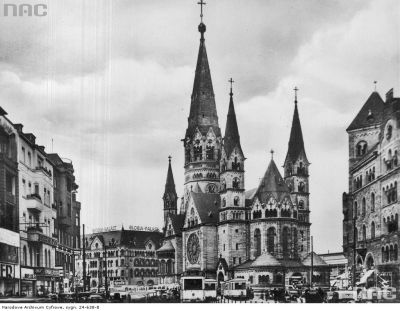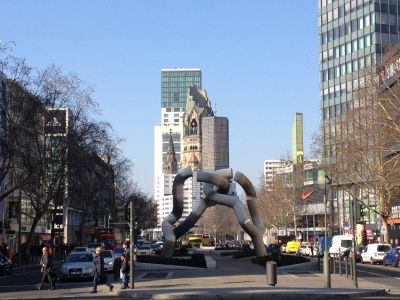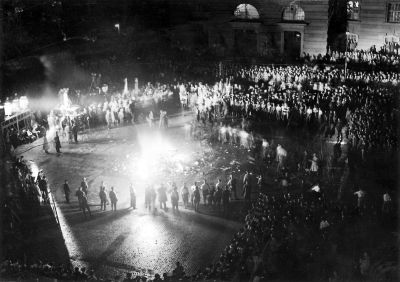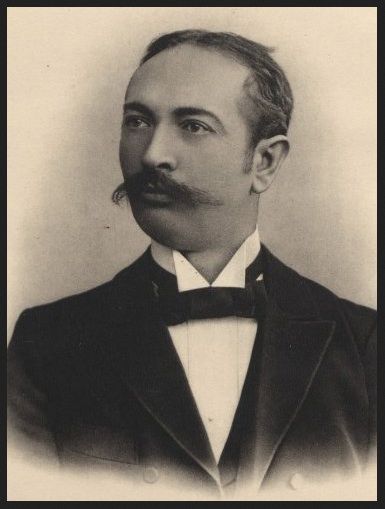Antoni Graf Sobański
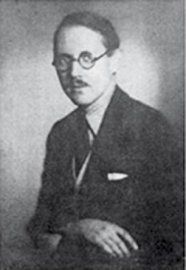
Antoni Graf Sobański was born on 1st May 1898 in Obodówka, a part of Poland which had been annexed by the Russians. He came from a Polish rural aristocratic family and was the youngest of three children. In 1905 the family moved to Warsaw. Between 1917 and 1925 he studied different subjects at a number of universities without, however, gaining a degree. At the same time Sobanski inherited a castle in Guzów and a sugar factory from his uncle, which meant that he divided his time between his duties on his estate and social life in Warsaw. In Warsaw Antoni Graf Sobański was not just anybody. He was one of the most glamorous personalities in high society and at the same time a highly esteemed journalist, popular essayist and very promising writer. His friends called him “Tonio”. These were by no means unknown persons, but diplomats, academics and Bohemians. Jarosław Iwaszkiewicz and Witold Gombrowicz talked about him in the highest tones of admiration; he was eloquent, humorous, ironic, witty and cultivated. Count Sobański was an enlightened European who was well aware of, and averse to nationalist and anti-Semitic tendencies, also in Polish society. He spoke and wrote in six European languages, travelled a great deal, and lived in London, Paris, Berlin, Vienna and Petersburg.
Adolf Hitler was declared Reichs Chancellor in January 1933. On 5th March 1933 elections to the Reichstag took place at which the Nazi party narrowly failed to achieve the absolute majority. Given these political portents the editors of the Polish journal “Wiadomości Literackie” (Literary News), decided to send a correspondent to Berlin to send them first-hand news about the Third Reich. Their choice fell on Sobański. He seemed to be ideally suited for this mission because he had friends in Berlin and felt almost at home there. As early as April 1933 Count Sobański travelled to Berlin and began to write down his observations which are even today some of the most important documents on the state of German society at the start of the Nazi regime because they are more than simply additions to our overall picture. Sobański was a shrewd and objective observer. He approached his work in a very conscientious manner. He was curious about everything he saw and heard, and the more something appeared to be inexplicable the more he wanted to understand it. He spoke with countless people, read newspapers and even counted the number of pictures with Nazi motifs; he raced tirelessly around the city and even analysed theatre repertoires and cinema programmes. He then worked all his impressions into his reports which were printed in the “Wiadomości Literackie” and read with great interest and enjoyment. All in all eight of his reports were printed in 1933. Following subsequent trips to Danzig and Nuremberg five further travel reports appeared in 1936. In their sober style they are still sharp analyses of German society under a developing totalitarian system.
In 2005 the literary world rediscovered Count Sobański’s reports when they appeared in book form under the title “Cywil w Berlinie” (Plain Clothes in Berlin). The title is apposite because Sobański regarded Berlin as “a city of uniformed people“ where even the jobless wore a uniform. The title of the German edition is not so imaginative: “News from Berlin 1933-36”. Nevertheless the book is a godsend for German readers. The German edition appeared in 2007.
Count Antoni Graf Sobański thought that there was no great likelihood of war because he believed people were humane. But when the Second World War broke out with the invasion of Poland on 1st September 1939 Sobański fled to London via southern Europe. He was never to experience the end of the war because he died of a pulmonary disease in 1941.
Adam Gusowski, June 2014
